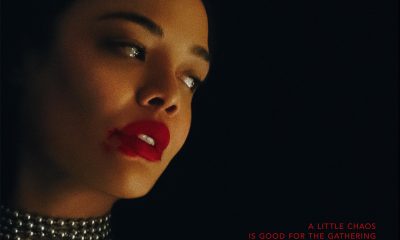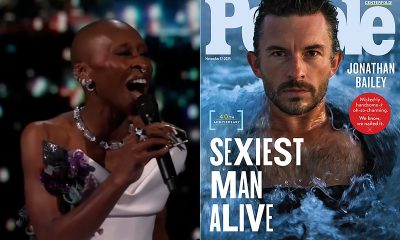Television
Golden Globe nods reflect more queer inclusion, but is it enough?
Awards season is in full swing
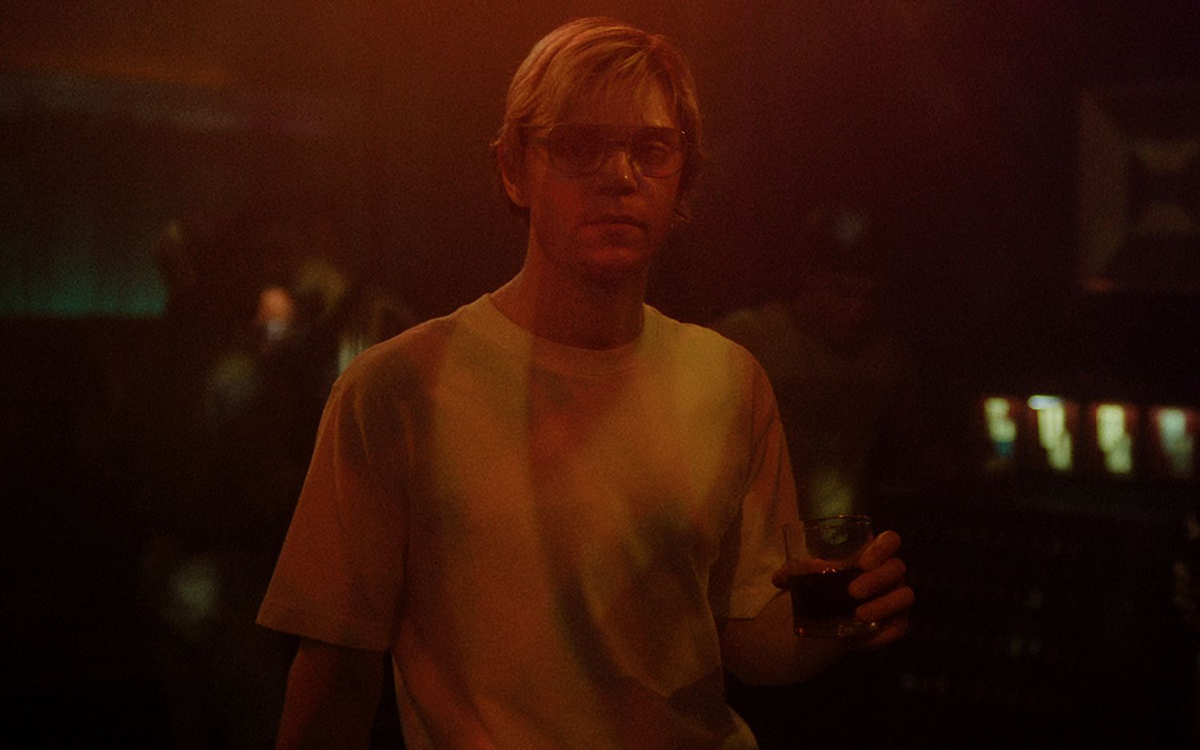
Ready or not, Hollywood’s annual awards season has arrived.
The Hollywood Foreign Press Association – better known as the institution behind the annual Golden Globe Awards and undoubtedly eager to kick off their comeback after scandal, censure, and boycott sidelined them from the limelight last year – started the week with a pre-dawn Monday announcement the nominees for the 80th annual awards presentation, honoring the best in film and television for 2022.
For those who weren’t paying attention or simply don’t recall, the HFPA fell into disfavor within the industry after a bombshell 2021 LA Times investigation revealed a lack of diversity within its voting body and strongly suggesting numerous improprieties around its nomination process and financial practices. A majority of Hollywood heavy-hitters opted to boycott the Golden Globes – three-time winner Tom Cruise, for instance, returned his trophies in protest – and NBC, the network that had long been home to the annual presentation, canceled the telecast. The 2022 awards (for content released in 2021) proceeded, but they were announced via a comparative non-ceremony on Twitter.
Now, however, after implementing a self-imposed list of guidelines (including restructuring its voting body with a 50% increase in membership and a deliberate focus on diversity and BIPOC inclusion, along with reforms to limit and restrict gifts and promotional materials to HFPA members from studios and publicists), the Golden Globes have been restored to favor, and are slated to return to NBC for the live broadcast of their awards ceremony on Jan. 10.
Whether or not the organization’s reforms will result in any meaningful change remains to be seen. Either way, the Globes — long seen as a precursor to the Oscars — are back in the awards game; and as always, the Blade is here to offer a queer perspective on the films and individuals in the running to take home a trophy.
At first glance, many observers accustomed to the traditional Hollywood erasure of any LGBTQ presence from its content might see the list of 2022 nominees as disappointing; yet while it’s true that there are few openly queer people or directly queer films among the honorees, the overall slate reflects a shift in industry inclusivity that makes that conclusion feel much less cut and dried.
For instance, among the nominees for its major film categories are such titles as “Everything Everywhere All at Once,” “Tár,” “The Whale,” “Babylon,” and “The Inspection,” all of which feature queer characters or storylines, and queer filmmaker Baz Luhrmann earned a nod as Best Director for “Elvis.” Likewise, the TV nominations include queer inclusive shows like “Ozark,” “Hacks,” “Euphoria,” “Better Call Saul,” “The White Lotus,” “Andor,” “Severance,” and “Only Murders in the Building” – not to mention “Monster: The Jeffrey Dahmer Story,” the controversial but acclaimed Ryan Murphy limited series that is arguably the most overtly queer title in the crop.
As for the performers, several of them earned their nods for playing LGBTQ characters. Among those in the film acting categories are frontrunners Cate Blanchett (“Tár”) and Brendan Fraser (“The Whale”), both straight actors giving sensitive and widely praised performances, and out queer actor Jeremy Pope (“The Inspection”). “Everything Everywhere” actresses Michele Yeoh and Jamie Lee Curtis, nominated in the Lead and Supporting Actress Comedy categories, respectively, could arguably be added to the list, too, since the film features scenes of an alternative universe in which the two are in a lesbian relationship.
As a relevant side note, Fraser has already vowed to boycott the ceremony, citing his accusation that he was groped by former HFPA president Philip Berk in 2003.
On the TV side, nominees like Zendaya (“Euphoria”), Colin Firth (“The Staircase”), Evan Peters (“Monster: The Jeffrey Dahmer Story”) and out bisexual actress Hannah Einbender (“Hacks”) snagged nods for playing queer characters, while bi actresses Aubrey Plaza (“The White Lotus”) and Niecy Nash (“Monster: The Jeffrey Dahmer Story”), as well as nonbinary talent Emma D’Arcy (“House of the Dragons), scored for their work, as well.
What does all of this say about the state of LGBTQ representation in Hollywood? While it’s true that straight performers are still earning accolades for “playing gay” on film, a lingering tradition decried by many observers as being out of step with evolving ideology around queer representation, the fact that they are sharing the spotlight with authentic queer nominees represents an unmistakable step forward. Similarly, though few of the nominated films and shows are predominantly focused on queer subject matter, a significant percentage of them – including Best Picture nominees “Everything Everywhere” and “Tár” – include a strong LGBTQ presence, and many heavily feature LGBTQ characters and plot lines within their larger scope. On top of those points, it should not go unnoticed that queer comedian Jerrod Carmichael has been tapped to host the Golden Globes when they air in January.
In other words, it just might be that we are entering an age when we must adjust our assessment of queer representation in Hollywood to fit an evolving model in which LGBTQ people are so regularly woven into the tapestry of film and television content as to be ubiquitous. It will always matter for openly queer actors to be acknowledged for their work, it will always be important for some percentage of movies and shows to put queer stories front and center, and it will likely always be necessary for us to fight to ensure those requirements are met by an industry that has traditionally treated us as irrelevant – but maybe, just maybe, if the trend suggested by the HFPA’s picks continues to hold, it might also be a little less necessary to keep such a tightly watched score card when it comes to being included.
Of course, it’s worth noting that the brilliant but hopelessly straight Martin McDonough film “The Banshees of Inershin” leads the Golden Globes tally with seven total nominations, and that among the notable snubs were Netflix’s “Heartstopper” and any number of other strong, positive queer-centric titles. So perhaps, after all, it’s a little early to ease our pressure on the entertainment establishment; it might be doing better, but it still has a long way to go. Until it gets there, we’ll keep looking at awards season as a barometer for Hollywood’s evolution into a queer-friendlier place.
In that way, it seems the Golden Globes are still relevant, after all.
Television
Charles Galin King brings cultural influences, style to ‘King of Drag’
First-ever drag king television competition series airs on Revry
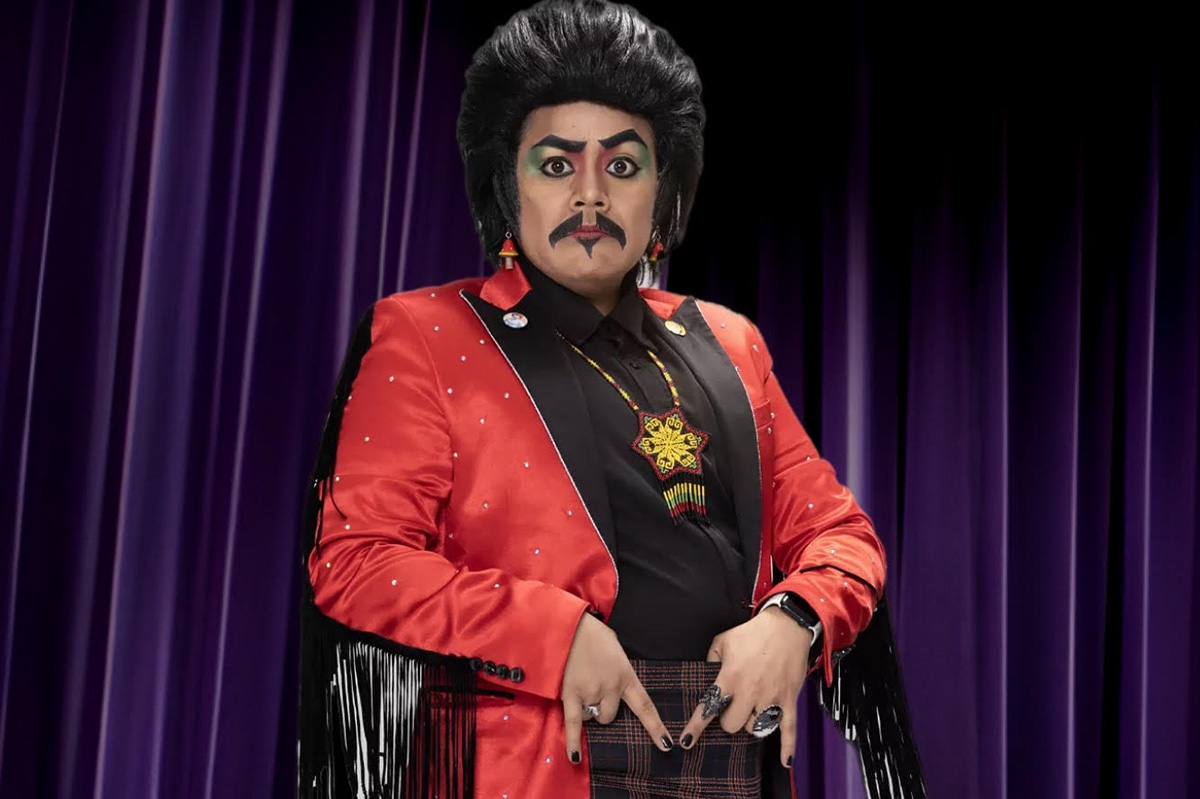
When Charles Galin King made his big debut on the world’s first drag competition show, “King of Drag,” you knew you were taking in a star. He introduced himself as “a Mexican-American Indigenous Wixárika with Ch’ol blood person,” and you couldn’t help but take notice.
His cultural influences are apparent in his drag, serving distinct and memorable looks. He won fans over with his fabulous impression of Nosferatu on “The Dong Show” and connected with them through his honesty about his mental health struggles. After bringing the black plague to the prom, his time on the Revry series came to an end.
We caught up with Charles Galin King to talk about his experience on “King of Drag,” what he hopes to see in future seasons, and advice for new drag kings.
Tell us about your first time in drag.
Back in high school senior year, I decided to wear one of my dad’s black button-up short-sleeved shirts and made a beard and mustache on my face, and wore a fedora hat. I went out with one of my best friends to this day, Ruben, and we went to Hollywood and went to Jack and the Box. I needed the restroom and went to the women’s, and a guy coming out of the men’s said, “Not that one, this one.” And I felt validated in drag cause I was that convincing of a “man,” jajaaaja.
What made you decide to be a part of the inaugural season of ‘King of Drag’?
I wanted to try it cause I was looking at the application out of curiosity, and upon reading started feeling fear and nervousness. And said, “I should apply,” to my mother. Also, l will die one day, might as well go for it and see how it is. I knew I would be a part of the first trial and error cause it’s a first of its kind, so we all learned together what this show is and will be.
What do you hope to see differently in future seasons?
More kings on the King’s Court, and more BIPOC judges, and more lip sync songs.
What surprised you most about your experience on ‘King of Drag’?
I gained nine new siblings and felt a beautiful connection to myself in wanting to be a part of this community even more because of them. And due to being a beautifully diverse experience.
What do you cherish most about your filming experience?
I showed what drag means to me and what my drag is. And being able to say thank you to the cast, crew, tech, and owners of the studio where filming was at.
If you could do one thing over on ‘King of Drag,’ knowing what you know now, what would it be?
Have more money and be able to show my true fear of cutting out a fetus from me and showing myself dying.
Have you had any especially memorable fan interactions since the show began?
Yes, when people and fans would say thank you for sharing your story about accepting death and suicide. And them asking me what surprised me most about being on the show.
Do you hear from other kings about the representation the show offers?
Yes, very much. They feel seen and have been wanting this for such a long time, and it’s a breath of fresh air seeing us all work together. We still feel the hate from those who don’t understand our existence, though I have learned from my kings on the show that with every hate comment, there are ten love comments from the fans.
What do you want aspiring kings to know about the working life of a king?
Be prepared to be looked at by certain audiences with stares of confusion, and being on their phone when performing or being compared to other kings. Also, since we are still climbing to be accepted in this world, the majority of “Drag Race” fans still see us as non-existent and trash. Always focus on our drag king audience, for they understand us the most. Always have fun, for if I have fun, then the audience will have fun alongside me. SO many queens support us, and there are still queens who look down on us. Accept that and focus on your music, routines, lyrics, and feeling the vibes of what character you will put on stage.
If you can ask a co-star or Murray Hill one question at a season 1 reunion, what would it be?
What’s your favorite flavor of ice cream if you eat ice cream? And when can we hang out and look out to the sunset and high-five when it’s time to go home?
Stream the entire season of “King of Drag” now on Revry.com and follow Charles Galin King on social.
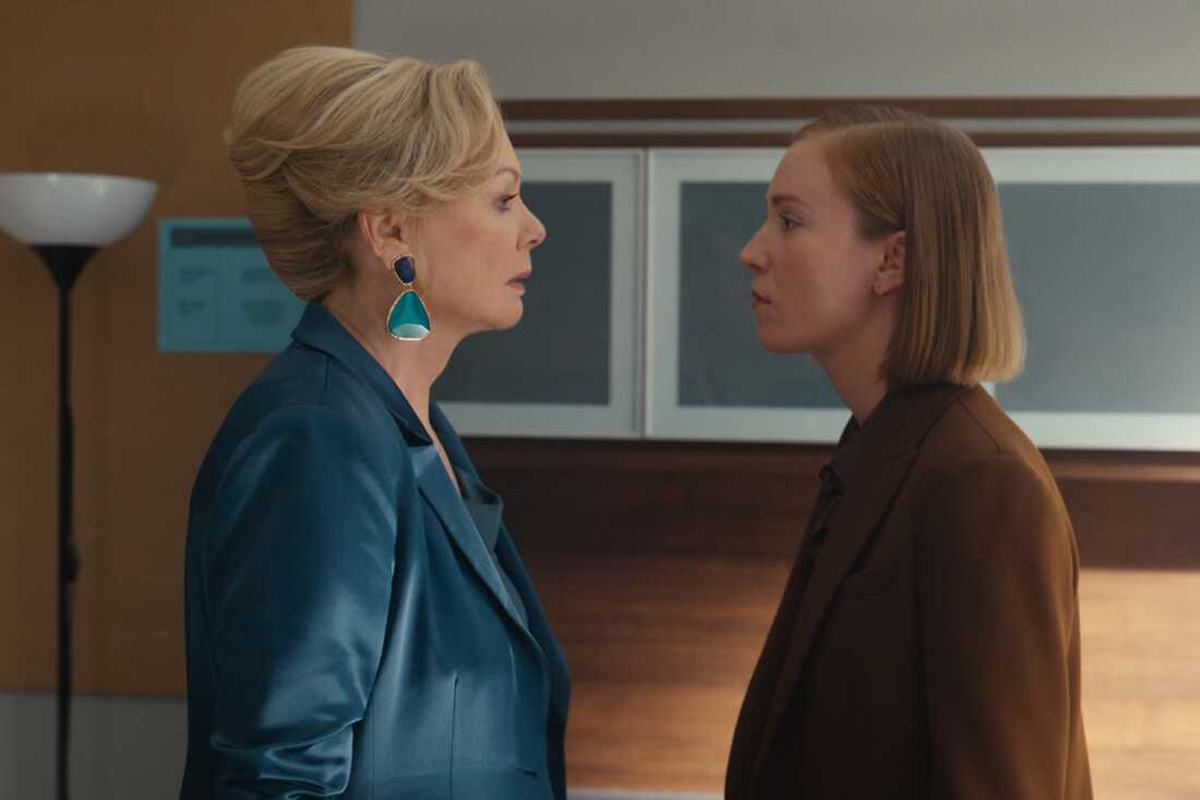
Sure, we know everybody’s talking about the Emmy nominations right now, but they aren’t the only TV awards in town.
On July 8, GALECA: The Society of LGBTQ Entertainment Critics announced the winners of its 17th Dorian TV Awards.
With more than 560 critics, journalists, and media icons making up its membership, GALECA is the second largest entertainment journalists’ group in the world, and they present their Dorian Awards – named in honor of Oscar Wilde, the celebrated queer writer who penned “The Picture of Dorian Gray” and who serves as something like the group’s patron saint – to honor the best in film, television, and theater at separate times during each year. Frequently, many Dorian nominees and winners presage similar honors from the more mainstream awards bodies, reminding the world that the informed LGBTQ perspective on all things entertainment definitely matters; at the same time, however, the Dorians also include several queer-centric categories that are unique to them, providing an opportunity to amplify the reach of more unsung and off-the-radar material which might otherwise be overlooked.
For this year’s TV awards – which, as always, honor both mainstream and queer-focused content across broadcast, cable, and streaming platforms – streaming giant Max scored big. Their new, genre-expanding hit “The Pitt” was awarded Best TV Drama, with veteran star Noah Wyle earning Best Leading TV Performance (Drama) for his role on the show. A parallel double victory was bestowed in the comedy categories, where Max triumphed once more with “Hacks” winning both Best TV Comedy and Best Lead Performance (Comedy) for star Jean Smart (both winning for the third year in a row), and her co-star, Hannah Einbinder, took the Best Supporting TV Performance (Comedy) win for a second time. “Hacks” also scored wins as Best LGBTQ TV Show and Best-Written TV Show (Comedy).
Smart also added an additional accolade to her ever-growing tally, winning GALECA’s TV Icon Award, an annual career achievement honor previously bestowed on the likes of Jennifer Coolidge, Christine Baranski and Carol Burnett. Other special accolades: nonbinary multi-hyphenate Cole Escola (creator-star of the outlandish Broadway smash “Oh, Mary!”) earned GALECA’s “Wilde Wit” Award, following in the footsteps of such past winners as Julio Torres, Wanda Sykes, Bowen Yang and John Oliver; and Ncuti Gatwa – the Rwandan-born Scottish actor who is the first Black and out queer performer to portray the title character in BBC’s long-running sci-fi hit “Doctor Who” – was named as LGBTQIA+ TV Trailblazer.
Other noteworthy wins: “Andor,” the boldly queer-inclusive (and anti-fascist) Disney Plus “Star Wars” spin-off about the rise of the galactic resistance against an authoritarian empire, was named as Best Genre TV Show; “Overcompensating,” the sexy-but-sweet collegiate comedy from viral internet star Benito Skinner and Amazon Prime Video, took the prize for Best Unsung TV Show; Peacock’s Alan Cumming-hosted “The Traitors” won double honors as both Best Reality Show and “Campiest” TV Show (the Dorians’ cheekiest prize); the HBO two-parter “Pee-wee as Himself” defeated all competitors to win as both Best TV Documentary and Best LGBTQ TV Documentary; and “Wicked” fans will be glad to hear that the movie’s stars Ariana Grande and Cynthia Erivo (the group’s LGBTQIA+ Film Trailblazer honoree earlier this year) came in on top of the TV Musical Performance category, beating out a highly competitive field that included Beyoncé and Kendrick Lamar, to win with a medley of tunes from “The Wizard of Oz” and its various descendents on ABC’s broadcast of the 97th Academy Awards.
“This year’s Dorian TV winners prove once again that queer folks have an especially keen eye for stellar TV, using our culture’s lens to elevate the bold, brilliant, and blissfully bonkers,” said Diane Anderson-Minshall, GALECA’s Executive Director. “From Hacks’ dazzling domination to Ncuti Gatwa’s historic trailblazing, we’re proud to celebrate a wildly entertaining spectrum of talent and storytelling.”
Added GALECA’s President, Walt Hickey, “The Dorian Awards this year illustrate more than anything the depth and quality of TV right now, especially when it comes to shows by and for LGBTQ+ people. This year’s crop of winners made us laugh, inspired us, and delivered some of the most intense and rewarding performances many of our members have ever seen.”
GALECA: The Society of LGBTQ Entertainment Critics and its Dorian Awards honor the best in film, television, and theater at separate times of the year. With over 560 members, GALECA. A nonprofit organization, GALECA also advocates for better pay, access, and respect for entertainment journalists (especially those most underrepresented), providing scholarships for LGBTQ journalism students and more.
2025 DORIAN TV AWARD WINNERS, FULL LIST
BEST TV DRAMA
Andor (Disney+)
The Last of Us (HBO)
The Pitt (Max)
Severance (Apple TV+)
The White Lotus (HBO)
BEST TV COMEDY
Abbott Elementary (ABC)
Hacks (Max)
The Rehearsal (HBO)
Somebody Somewhere (HBO)
The Studio (Apple TV+)
BEST LGBTQ TV SHOW
Agatha All Along (Disney+)
Hacks (Max)
Heartstopper (Netflix)
Overcompensating (Amazon Prime Video)
Somebody Somewhere (HBO)
Rebel Ridge (Netflix)
BEST WRITTEN TV SHOW
Andor (Disney+)
Hacks (Max)
The Pitt (Max)
Severance (Apple TV+)
The White Lotus (HBO)
BEST UNSUNG TV SHOW
English Teacher (FX on Hulu)
Evil (Paramount+)
Fantasmas (HBO)
Mid-Century Modern (Hulu)
Overcompensating (Amazon Prime Video)
BEST NON-ENGLISH LANGUAGE TV SHOW
Elite (Netflix)
My Brilliant Friend (HBO)
One Hundred Years of Solitude (Netflix)
Pachinko (Apple TV+)
Squid Game (Netflix)
Threesome (ViaPlay)
BEST LGBTQ NON-ENGLISH LANGUAGE TV SHOW
Becoming Karl Lagerfeld (Hulu)
The Boyfriend (Netflix)
Elite (Netflix)
The Secret of the River (Netflix)
Threesome (Viaplay)
When No One Sees Us (Max)
BEST TV PERFORMANCE – DRAMA
Colin Farrell, The Penguin (HBO)
Stephen Graham, Adolescence (Netflix)
Cooper Koch, Monsters: The Lyle and Erik Menendez Story (Netflix)
Diego Luna, Andor (Disney+)
Cristin Milioti, The Penguin (HBO)
Pedro Pascal, The Last of Us (HBO)
Bella Ramsey, The Last of Us (HBO)
Adam Scott, Severance (Apple TV+)
Michelle Williams, Dying for Sex (FX on Hulu)
Noah Wyle, The Pitt (Max)
BEST SUPPORTING TV PERFORMANCE—DRAMA
Carrie Coon, The White Lotus (HBO)
Owen Cooper, Adolescence (Netflix)
Taylor Dearden, The Pitt (Max)
Erin Doherty, Adolescence (Netflix)
Walton Goggins, The White Lotus (HBO)
Katherine LaNasa, The Pitt (Max)
Genevieve O’Reilly, Andor (Disney+)
Parker Posey, The White Lotus (HBO)
Jenny Slate, Dying for Sex (FX on Hulu)
Tramell Tillman, Severance (Apple TV+)
BEST TV PERFORMANCE—COMEDY
Uzo Aduba, The Residence (Netflix)
Quinta Brunson, Abbott Elementary (ABC)
Ayo Edebiri, The Bear (FX on Hulu)
Bridget Everett, Somebody Somewhere (HBO)
Nathan Fielder, The Rehearsal (HBO)
Kathryn Hahn, Agatha All Along (Disney+)
Natasha Lyonne, Poker Face (Peacock)
Seth Rogen, The Studio (Apple TV+)
Benito Skinner, Overcompensating (Amazon Prime Video)
Jean Smart, Hacks (Max)
BEST SUPPORTING TV PERFORMANCE—COMEDY
Ike Barinholtz, The Studio (Apple TV+)
Colman Domingo, The Four Seasons (Netflix)
Hannah Einbinder, Hacks (Max)
Kathryn Hahn, The Studio (Apple TV+)
Jeff Hiller, Somebody Somewhere (HBO)
Holmes, Overcompensating (Amazon Prime Video)
Janelle James, Abbott Elementary (ABC)
Linda Lavin, Mid-Century Modern (Hulu)
Catherine O’Hara, The Studio (Apple TV+)
Meg Stalter, Hacks (Max)
BEST TV MUSICAL PERFORMANCE
Beyoncé, “Cowboy Carter” medley, Beyoncé Bowl (Ravens vs. Texans Halftime Show) (Netflix)
Doechii, “Catfish” / “Denial Is a River,” 67th Annual Grammy Awards (CBS)
Cynthia Erivo, Ariana Grande, “Oz Medley” (“The Wizard of Oz,” “The Wiz,” “Wicked”), 97th Academy Awards (ABC)
Kathryn Hahn, Patti LuPone, Ali Ahn, Sasheer Zamata, “The Ballad of the Witches’ Road,” Agatha All Along (Disney+)
Kendrick Lamar, “Squabble Up,” “Humble,” etc., Super Bowl LIX Halftime Show (Fox)
BEST TV DOCUMENTARY OR DOCUMENTARY SERIES
Deaf President Now! (Apple TV+)
Elizabeth Taylor: The Lost Tapes (Max)
Pee-wee as Himself (HBO)
The Rehearsal (HBO)
SNL50: Beyond Saturday Night (Peacock)
BEST LGBTQ TV DOCUMENTARY OR DOCUMENTARY SERIES
Disco: Soundtrack of a Revolution (PBS)
Fanatical: The Catfishing of Tegan and Sara (Hulu)
Outstanding: A Comedy Revolution (Netflix)
Pee-wee as Himself (HBO)
Queer Planet (Peacock)
BEST CURRENT AFFAIRS SHOW
The Daily Show (Comedy Central)
Everybody’s Live with John Mulaney (Netflix)
Hot Ones (YouTube)
Late Night with Seth Meyers (NBC)
Last Week Tonight with John Oliver (HBO)
BEST GENRE TV SHOW
Agatha All Along (Disney+)
Andor (Disney+)
Black Mirror (Netflix)
The Last of Us (HBO)
Severance (Apple TV+)
BEST ANIMATED SHOW
Big Mouth (Netflix)
Bob’s Burgers (Fox)
Harley Quinn (Max)
The Simpsons (Fox)
Star Trek: Lower Decks (Paramount+)
MOST VISUALLY STRIKING TV SHOW
Adolescence (Netflix)
Agatha All Along (Disney+)
Andor (Disney+)
Severance (Apple TV+)
The White Lotus (HBO)
BEST REALITY SHOW
The Amazing Race (CBS)
The Great British Baking Show (Netflix)
RuPaul’s Drag Race (MTV)
Top Chef (Bravo)
The Traitors (Peacock)
CAMPIEST TV SHOW
Doctor Odyssey (ABC)
Mid-Century Modern (Hulu)
Overcompensating (Amazon Prime)
RuPaul’s Drag Race (MTV)
The Traitors (Peacock)
WILDE WIT AWARD
Quinta Brunson
Alan Cumming
Hannah Einbinder
Cole Escola
Nathan Fielder
GALECA TV ICON AWARD
Gillian Anderson
Angela Bassett
Alan Cumming
Sarah Michelle Gellar
Jean Smart
GALECA LGBTQIA+ TV TRAILBLAZER AWARD
Jonathan Bailey
Greg Berlanti
Ncuti Gatwa
Bella Ramsey
Mike White
Television
How this Texas drag king reclaimed their identity
Chicano performance art serves as inspiration
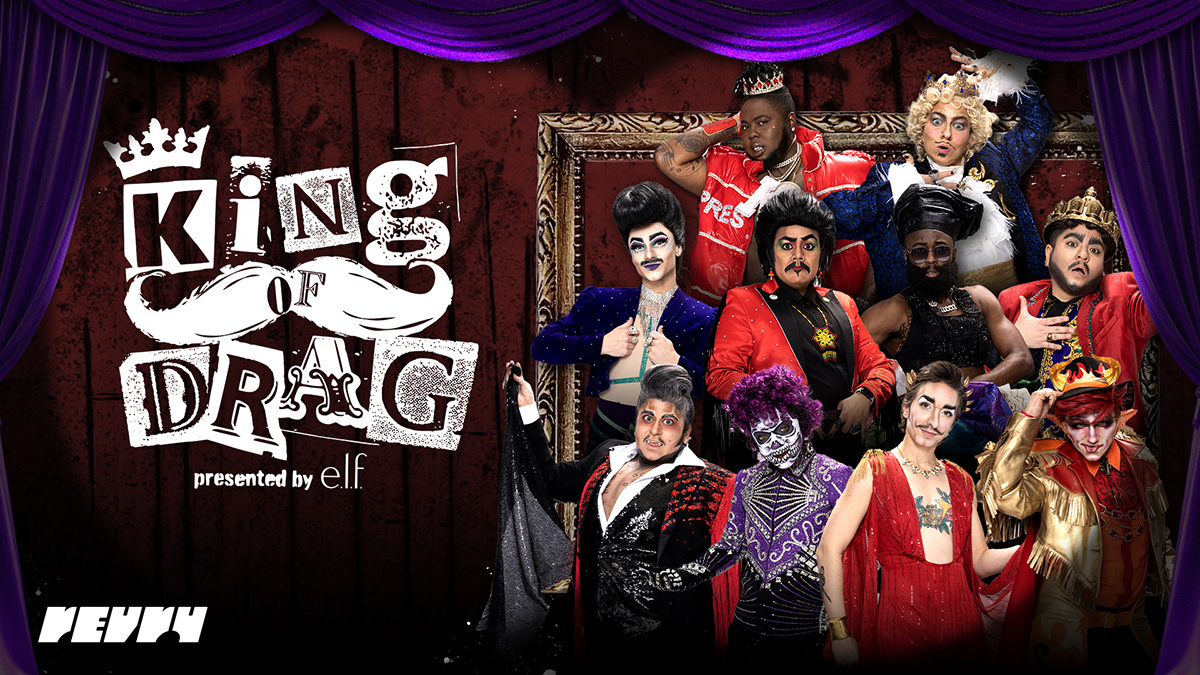
Three out of ten drag kings who were cast for this first season of King of Drag self-identified as Latinx and after episode two, only one Latinx king remains in the running for the competition.
Buck Wylde, a king from Dallas, Texas delivered a performance that took inspiration from their Catholic upbringing and Catholic school days to put together this persona. During the episode, they shared that they like to “play with religion.”
Murray Hill responded by adding, “sometimes we can’t afford to go to therapy for the Catholic guilt, so we do drag.” Buck Wylde says their therapy and their church is drag.
Buck Wylde, cancer sign, goes by Trigger Mortis when they are outside of drag and present more on the femme side. Along with Big D—another drag king on the series—they are the only two who are more femme outside of their drag persona.
During this episode, Buck Wylde also spoke about the difficulty of performing drag in a red state. They live in conservative Dallas, so they still struggle to find large-scale acceptance and support in the midst of statewide legislation targeting the LGBTQ community in Texas.
“Sometimes it doesn’t feel [as] safe as [I] would like it to be. There’s protesters all the time and we don’t have as many spaces to perform as kings there,” they said in the interview.
Buck Wylde says that for them, the most important thing about drag, is that it is and always has been a protest.
Living in a conservative state is a challenge to them as a drag king, but they say that it’s important for them to stand their ground and not only bring that representation to these areas, but also intentionally keep it there.
“So many people leave Texas for their safety and mental health to go to Portland, LA, or Colorado Springs or you know, anywhere but here.”
During the episode, Buck Wylde also opened up about how their religious background and cultural heritage added an extra layer to their identity issues growing up where they did. Their family wanted them to assimilate and even prevented them from speaking Spanish and they say that through Buck, they are able to re-examine what it means to be a part of that culture.
Buck Wylde is a third generation Mexican-American and they say that though their Spanish is not fluent, they say they do prefer their horchata without (ICE).
“I kind of straddled different worlds there, because I was sort of assimilated but I still had my Mexican culture. I always felt like I wasn’t connected enough because of the assimilation and it was through drag that I was able to reclaim my culture.”
In the first round of competitions for the second episode, the kings broke up into three teams of three for an improv skit where they would have to mansplain a topic and whichever team did it the best—won the group Weenie Challenge.
The winning team included Buck Wylde, Alexander the Great and Henlo Bullfrog. Together they improvised a skit where they mansplained the Amelia Earhart story.
For the solo show, they dressed up as ‘The Devil’ for the improv solo challenge, cracking a joke about how they are dressed like the person currently living in The White House.
Dressed as the Devil, sporting a Zoot Suit for the final competition, Buck Wylde improvised a skit with food.
Buck Wylde says they felt the pressure to perform because along with the other nine kings who were cast, they are the first ten kings to make it to the mainstream and represent king culture.
“We call ourselves the first ten because whatever happens, we’re responsible for how the kings are viewed and how we move forward together, being the blueprint for what’s to come,” said Buck Wylde in an exclusive interview with Los Angeles Blade.
Back stage before the solo improv competition, Buck Wylde says they felt their drag persona “crumbling” away.
They felt like Buck had abandoned them prior to their big moments to prove to the judges that they should stay in the running for the competition. They went up against Perka $exxx, who gave a king-based Dave Chappell performance.
In the end, it was Perka $exxx who received a 4-1 vote from the judges.
Buck Wylde left the show with some advice for the kings and the audience: “No matter what life throws at you, always remember who the Buck you are.”
King of Drag is now available to stream on RevryTV, an LGBTQ streaming platform for queer movies, TV shows, music and more — all for free. New King of Drag episodes will premiere weekly on Sundays.
-

 Sponsored5 days ago
Sponsored5 days agoSafer Ways to Pay for Online Performances and Queer Events
-

 District of Columbia4 days ago
District of Columbia4 days agoTwo pioneering gay journalists to speak at Thursday event
-

 Colombia4 days ago
Colombia4 days agoBlade travels to Colombia after U.S. forces seize Maduro in Venezuela
-

 a&e features4 days ago
a&e features4 days agoQueer highlights of the 2026 Critics Choice Awards: Aunt Gladys, that ‘Heated Rivalry’ shoutout and more

